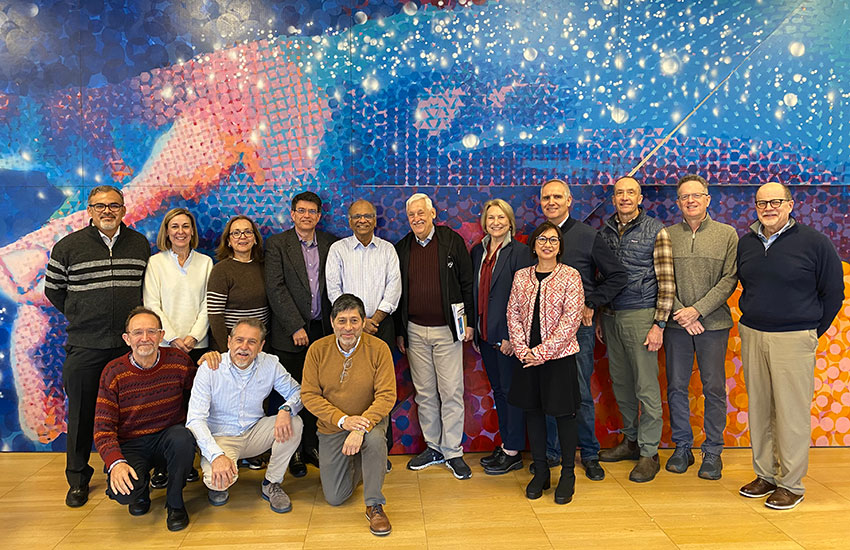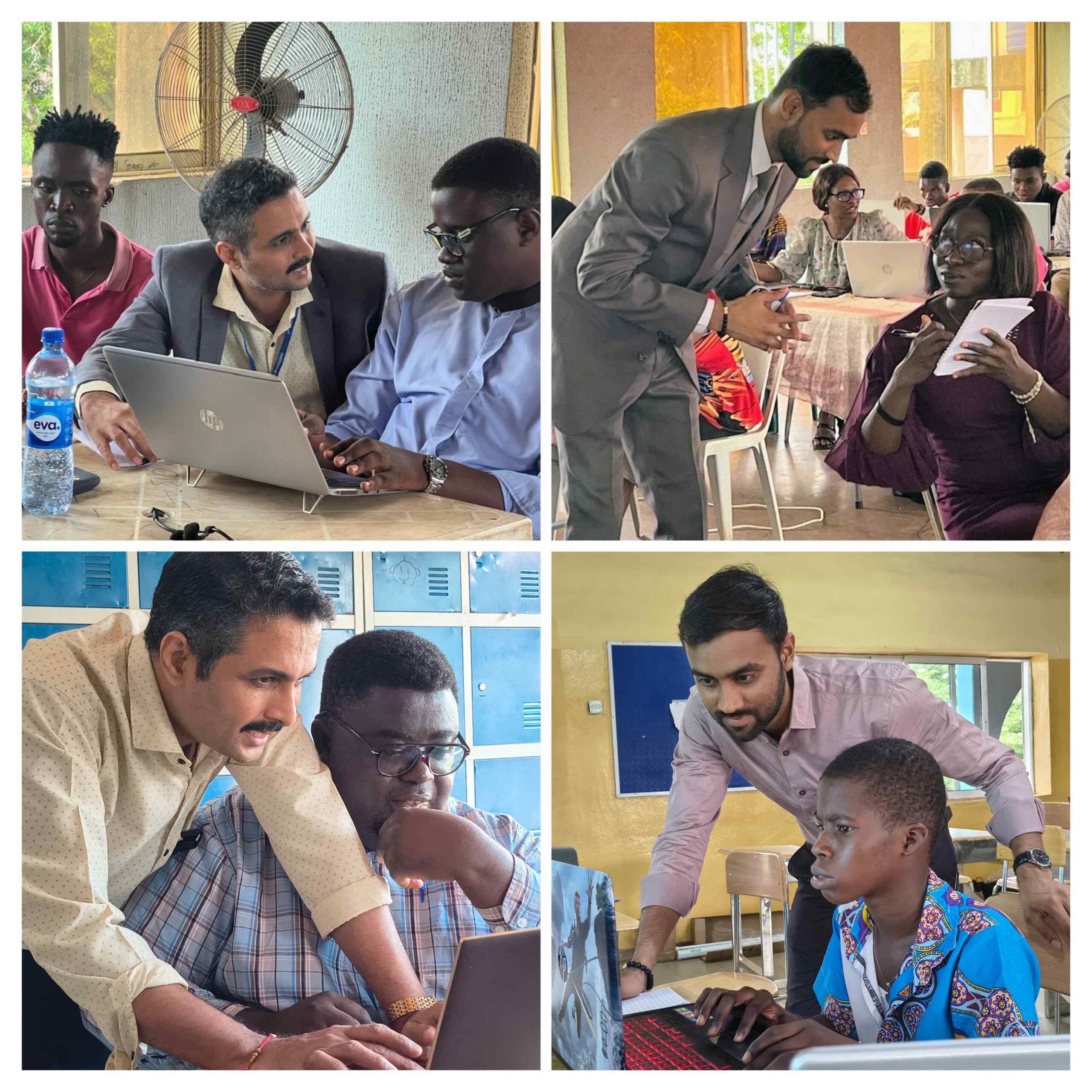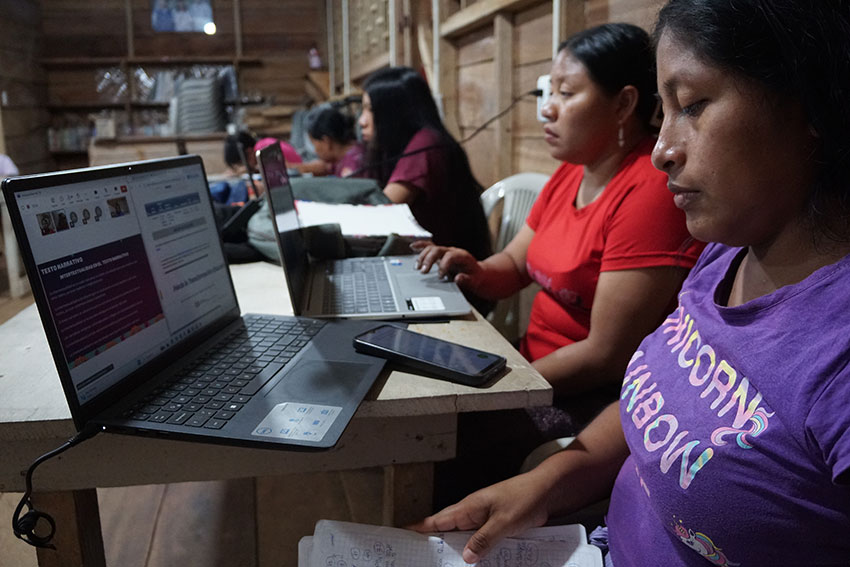JWL and Jesuit Universities at the Service of Marginalized Communities in Latin America
I had long been a representative voice for my people, but I never quite had the tools or the knowledge of how we might go about making the change. With all this in mind, I was inspired to start the [BA in Sustainable Development] programme.
Indigenous communities of the Amazon have long faced challenges which threaten their environment and way of life. They are often excluded from decision-making processes which affect them – merely left to experience the devastating consequences of their outcomes.
In consonance with the 2019 Amazon Synod’s recommendation and answering indigenous communities’ call, the Programa Universitario Amazónico (PUAM) and JWL are joining efforts to serve indigenous communities of the Amazon basin through quality and transformative higher education programmes.
As with the majority of other JWL community learning centres across the globe, the Global English Language (GEL) programme will be the first to launch. This provides a steppingstone for learners to access professional and academic programmes but also serves as an instrument which will enable youth from these communities to raise their voice at the local as well as international level, standing up for their rights and needs. In addition to the palette of existing JWL programmes, both organisations will also work to develop an Amazonian- focused public health and human rights programme to fill the gap of untrained public health community workers and to foster community activism against oppressive policies. Spanish versions of a couple of six-month programmes in Community Ecotourism and Peace Leadership will also be offered in the second half of 2023, in coordination with PUAM and other partners in Ecuador.
A learning centre opened just a few days ago in Dikaro, a village which is home to the Waorani indigenous community in Ecuadorian Amazon’s Yasuní National Park, will be the first learning centre to open in partnership with PUAM as well as with the Lauritas Sisters (who live among the Waorani). The opening of the centre comes at a critical time, as the community struggles to defend itself and its environment – an area on the edge of the petrol industry’s activity.
Over the course of the past year, JWL has also responded to calls for community learning centres for underserved communities in Ecuador (multiple centres launched in December 2022, in collaboration with Fe y Alegría and Hogar de Cristo), in Mexico (with Intercultural Institute of Ayuuk, Oaxaca, early 2023), and in Colombia (with the Pontifical Javeriana University of Cali, in Spring 2023). Partnerships have also been established with the St. Joseph’s Parish in the Dominican Republic to facilitate binational GEL initiatives in the town of Pedro Santana and in Los Cacaos in Haiti, and in Peru (in collaboration with Fe y Alegría), with plans to launch in the second half of 2023.
At the same time, JWL’s Learning Management System (LMS) has been translated into Spanish, in preparation for programmes which will be made available in the region’s primary language. During a workshop held earlier this Spring, representatives from JWL, PUAM, and Seitwerk GmbH came together in Germany in order to map out the collaboration, introduce the Student Information System (SIS) and LMS, and review the translation of the Ecotourism professional certificate programme (certified by IQS Ramon Lull, Spain), the first on the list of programmes to be offered in Spanish.
JWL’s focus is to offer emblematic bachelor’s degree programmes in Latin America with a focus on the care of our common home and in developing the human capital in the region. As such, JWL has begun a dialogue with the Pontifical Catholic University of Puerto Rico aiming to offer an Associate degree in Community Education that will serve as a pathway for a Bachelor’s in Transformative Education that will be offered by the Catholic University of Eichstatt-Ingolstadt. Other universities in Latin America are also exploring ways to support PUAM and JWL’s effort to bring the university to the community and to expand access to higher education to these disenfranchised communities.






